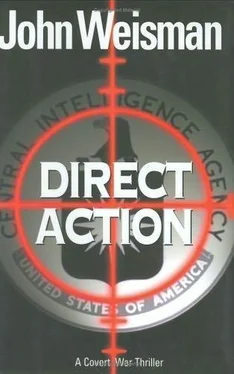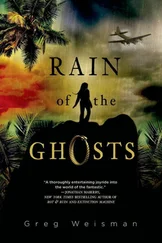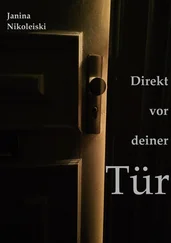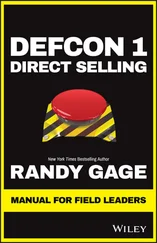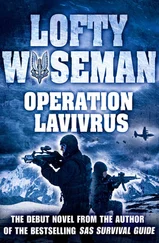Tom led Margolis back through the maze of barriers, turned the corner onto the rue Boissy-d’Anglas, and headed north. He thought about stopping in the bar of the Sofitel, but marched Margolis past the entrance. He didn’t want Margolis running into anyone he knew. Better to take him somewhere he’d never been. Someplace quiet.
3.54P.M. Tom ushered Margolis through the doorway of Le Griffonnier, walked past the neat bar to one of the small round tables close to the rear staircase, pulled out a chair, and gestured. “Please.”
Margolis dropped obediently into the chair and swiveled to take a look around as Tom slid between the marble-topped tables and sat on the tan leather banquette, his back to the wall. “Nice,” the kid said. “Nice place.”
“Quiet,” Tom said. “Private.” The proprietor, Robert Savoye, was nowhere to be seen. Neither was Rufus, the friendly wirehaired griffon who’d been retired from hunting because his nose had given out. These days, he lived in the bar and grew fat on snippets of cheese and sausage supplied by willing customers.
“So,” Tom said, “what would you like?”
“I’ve developed a taste for red wine lately,” Margolis said, almost guiltily.
“Nothing wrong with that. Had lunch?”
The youngster sighed. “Uh-huh. Commissary.”
“Gotcha.” Tom nodded. He signaled for the barman, ordered some saucisson sec, a selection of cheeses, a plate of sliced tomato, a bowl of baguette slices with butter on the side, and a bottle of Bourgueil-a 1997 Vaumoreau from Pierre-Jacques Druet.
When the man withdrew, Tom said, “So much for red wine.” He grinned. “And what vintage are you?”
Margolis gave him a shy smile. “I was accepted into DI in ’99. Went in right after grad school.”
The light in Tom’s brain switched on. The kid was one of Langley’s analysts turned case officers. “Where?”
“GW-did my undergraduate work there, too.”
“Major?”
“Poly sci. Minor in Spanish lit.”
“Why make the choice you did?”
“The truth? Kinda because I was at loose ends. Didn’t know what to do. Had no trade, really, although I really enjoy writing analysis. Plus, there was the patriotic thing. My father spent thirty years in the Navy. Retired as an O-6-a captain. My choice made my folks proud.”
“Didn’t you want to follow in your dad’s footsteps?”
“Nope. Or go to State, either. He was an attaché in Chile for three years. I went to school there. I dealt with embassy people a lot. It wasn’t something I wanted to do. So the other thing, it just, you know, made sense.”
“How are you finding it?”
“I liked the writing part a lot. I was assigned to L.A. Division,” Margolis sighed. “Even did one tour in Guatemala. But after 9/11, they came around and sorta kinda ordered a bunch of us to volunteer for DO training at the Farm.”
“‘Sorta kinda ordered’?”
Margolis leaned across the table. “You know how it was back then. Seventh floor leaked all sorts of stories about how we were gearing up, increasing the operational side-paramilitary and case officers. So they had to have bodies-and I was one of ’em.”
“How did you feel about the change of disciplines?”
“Not especially comfortable. But they said it was fast-track.” He shrugged. “I got my pseudo-Henry J. NOTKINS-and they put us through the training in eight weeks. Then I worked the desk at L.A. for six months-felt good about that. But then they assigned me to Paris and I went through eight weeks of French-language training. Came over to the embassy”-the kid counted on his fingers-“nine months ago.”
“How’re you doing?”
“Everything’s a lot tougher than I thought. Plus, they make it hard for you to do your work.” He leaned in toward Tom conspiratorially. “Most of the time you just sit around the office and read the papers.” He sat back. “I bet it wasn’t like that when you worked here.”
The kid was exhibiting vulnerabilities. How could he? That was one of the first things they teach you in basic-do not reveal. Tom decided to practice a little empathy tradecraft. “You’d be surprised,” he snorted. “Even in my day-which wasn’t so long ago-you had to fight the system to get anything done. It is worse now, though. I left last winter. Just couldn’t deal with the hurdles.”
“Know what’s the most frustrating thing? It’s the word can’t . It’s-” Margolis caught movement reflected in the mirror behind Tom and stopped midthought as the barman approached.
The barman set the food on the table, then showed Tom the Bourgueil. Tom looked at the bottle and nodded. The barman yanked the cork and handed it to Tom, who sniffed appreciatively, then pointed at his companion’s glass. “My friend will taste.”
Tom watched as Margolis swirled the wine and sniffed it. “Raspberries,” the younger man exclaimed. He looked up at the barman. “Framboises. C’est bon, ça! ” Then he tasted, grinned, and looked at Tom. “That’s wonderful. Where is it from?”
Tom looked up at the barman. “Leave the bottle, please. I’ll pour.” He turned back to Margolis. “It’s a Loire wine from vineyards right opposite Chinon. Got a little bit more body than Chinon.” He grinned. “And it hasn’t been discovered yet-so let’s keep this all need-to-know.”
Margolis nodded eagerly in agreement. “I’ll create a compartment. Only mention”-he picked up the bottle and examined it-“Bourgueil in the bubble.” He took a second look at the label and did a double take. “Tom,” he exclaimed, “I don’t believe it. It’s already a classified wine!”
Tom smiled, then steered the younger man back on course. “So it’s tough.”
“ Can’t. That’s the big word around the office. ‘Can’t do this,’ or ‘Can’t be done.’ What they mean is they won’t do it-or they’re incapable.” Margolis took a big gulp of wine. “Everything’s ‘Daddy, may I?’ and the answer’s always ‘No, you can’t.’” He snagged a piece of sausage on a toothpick, popped it into his mouth, and washed it down with Bourgueil. “Plus, there’s my languages. Like I said, I’m three-plus in Spanish. Frankly, I’d rather have gone to L.A.-do a tour in Buenos Aires, Santiago-even San Salvador. I understand the culture, and there’s lots of action these days-except nobody believes me when I tell them.”
Margolis leaned forward. “Did’ja know UBL’s people are starting to liaise with some of the Salvadoran gangs-paying big bucks to have themselves smuggled into Texas or Arizona? Boy, when I heard that, I thought to myself, That’s something . But all I got was, ‘What’s your point?’ I’m telling you, so far as the seventh floor is concerned, Latin America doesn’t exist. If you want to get ahead these days, you gotta be in DO, you gotta do CT, and you better do it in Europe or take a thirty-day Iraq tour.” He shook his head, poured himself more wine, drained the glass, then held it, toast-like, in front of his nose. “Baghdad? Me? Fuggedaboudit. So, here I am. Henry J. NOTKINS, Parisian counterterrorist.”
5:07P.M. The wine bar had filled up-mostly bureaucrats from the Ministry of the Interior headquarters, which sat directly across the rue des Saussaies. They crowded the bar, drank Sancerre, Juliénas, and Chinon, nibbled on sausage and tartines and gossiped. Tom and Adam were on their second bottle of Bourgueil-most of it inside Adam. Way before 4:30, the kid had pulled his legal pad off the table and sat on it. He’d never made a note.
Tom felt slightly guilty, but only because shaking information out of Margolis was easier than the “spot, assess, develop, recruit” training sessions at the Farm where retired case officers role-played prospective agents. He’d preferred to have spent his afternoon mentoring Adam Margolis-helping him to do what the guy had joined CIA to do in the first place. Indeed, there was probably nothing so wrong with the youngster that a couple of years of intense inculcation, tempering, and trial and error couldn’t fix.
Читать дальше
